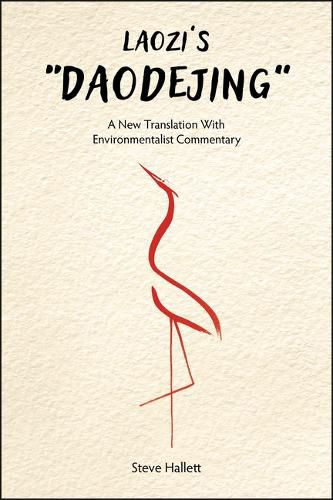Readings Newsletter
Become a Readings Member to make your shopping experience even easier.
Sign in or sign up for free!
You’re not far away from qualifying for FREE standard shipping within Australia
You’ve qualified for FREE standard shipping within Australia
The cart is loading…






Laozi's "Daodejing": A New Translation With Environmentalist Commentary offers a new translation and fresh interpretation of the eighty-one-verse Daodejing, one of the central texts of Eastern philosophy. Likely written during the late Zhou Dynasty between 600-400 BCE, this foundational work is generally attributed to an individual named Laozi, although it is unlikely that any such person actually existed. Here, author Steve Hallett employs contemporary poetic form when translating the document's approximately 5,000 Chinese characters and provides short analytical essays that illuminate the verses with a specific focus on the teachings they offer about social and environmental sustainability. His examination of this 2,500-year-old text suggests that perhaps not all our modern crises are as modern as they seem: Much of what ails us today may involve the same foolishness that has ailed us for millennia. Ultimately, this timely study posits that lessons from the past can help us avoid making hasty decisions related to the environment and show us how to chart a calmer, more patient, and more persistent path toward a just and sustainable future.
$9.00 standard shipping within Australia
FREE standard shipping within Australia for orders over $100.00
Express & International shipping calculated at checkout
Laozi's "Daodejing": A New Translation With Environmentalist Commentary offers a new translation and fresh interpretation of the eighty-one-verse Daodejing, one of the central texts of Eastern philosophy. Likely written during the late Zhou Dynasty between 600-400 BCE, this foundational work is generally attributed to an individual named Laozi, although it is unlikely that any such person actually existed. Here, author Steve Hallett employs contemporary poetic form when translating the document's approximately 5,000 Chinese characters and provides short analytical essays that illuminate the verses with a specific focus on the teachings they offer about social and environmental sustainability. His examination of this 2,500-year-old text suggests that perhaps not all our modern crises are as modern as they seem: Much of what ails us today may involve the same foolishness that has ailed us for millennia. Ultimately, this timely study posits that lessons from the past can help us avoid making hasty decisions related to the environment and show us how to chart a calmer, more patient, and more persistent path toward a just and sustainable future.